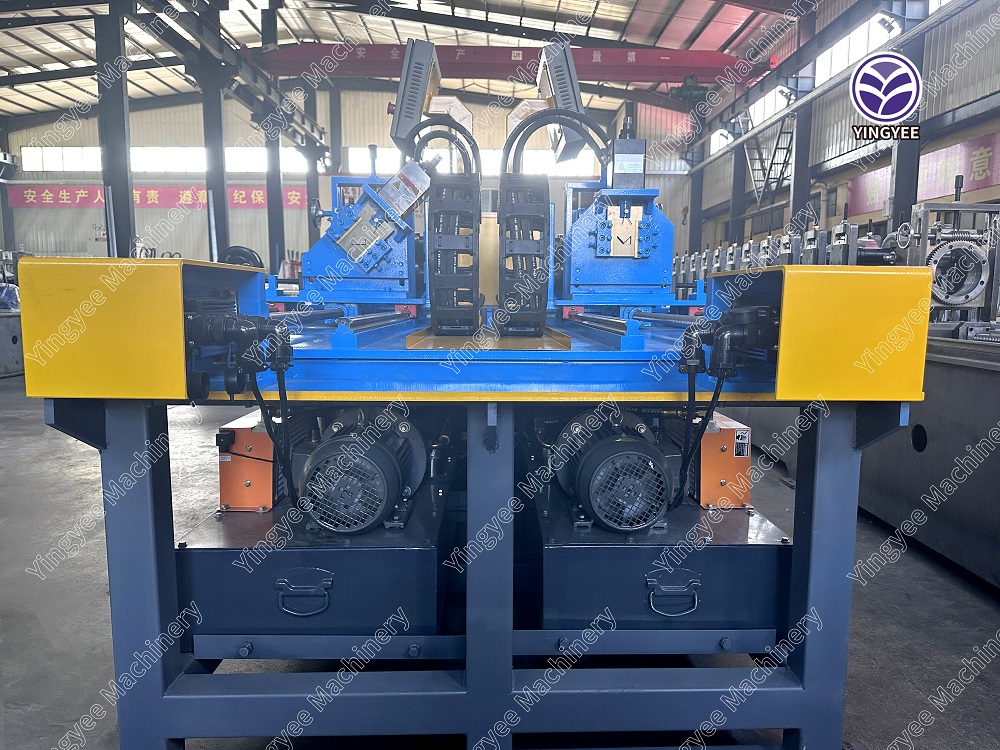
Understanding the Gypsum Stud and Wall Angle Roll Forming Machine
In the realm of modern construction, efficiency, precision, and adaptability are paramount. One essential component that consolidates these aspects is the gypsum stud and wall angle roll forming machine. This machine is designed to produce durable and lightweight metal framing components that are fundamental for drywalls, particularly in commercial and residential buildings. This article will delve into the workings, benefits, and applications of gypsum stud and wall angle roll forming machines.
What are Gypsum Studs?
Gypsum studs are metal profiles used to construct the skeleton framework of a drywall system. Typically made from galvanized steel, they provide strength and support for drywall installations. Gypsum studs come in various sizes and thicknesses, accommodating a range of construction requirements. They are crucial for creating walls and ceilings and can also assist in soundproofing and insulation functionalities.
The Role of Wall Angle in Drywall Systems
Wall angle, on the other hand, refers to the L-shaped metal pieces that form the corners and edges of drywall installations. These angles help ensure that the drywall panels are held in place securely and create uniform and smooth transitions between the walls and ceilings. The combined use of gypsum studs and wall angles effectively enhances the integrity and aesthetics of any drywall assembly.
The Functionality of Roll Forming Machines
A wall angle roll forming machine automates the process of creating these essential drywall components from metal sheets. The process begins with feeding a metal coil into the machine, which then processes it through a series of rollers. These rollers shape and contour the metal into the desired profile of gypsum studs and wall angles.
This technique enhances productivity by reducing manual labor and minimizing material waste. Roll forming machines are capable of operating at high speeds, allowing manufacturers to produce a large volume of metal profiles efficiently. Additionally, the precision of the machine ensures that each stud and angle is uniform, which is vital for quality construction.

Benefits of Utilizing Roll Forming Machines
1. Cost-Effectiveness By automating the production process, companies can significantly reduce labor costs while increasing production rates. 2. Quality Control With computer-aided design (CAD) technologies integrated into these machines, companies can achieve higher precision and quality in their manufactured studs and angles.
3. Customization Roll forming machines can be easily adjusted to create different sizes and shapes, allowing manufacturers to cater to various customer specifications.
4. Reduced Material Waste The efficiency of the roll forming process minimizes waste, making it a more sustainable option for construction projects.
Applications in the Construction Industry
Gypsum studs and wall angles manufactured using roll forming machines are widely used in various sectors of the construction industry. They are commonly found in residential homes, commercial buildings, and even large-scale industrial structures. These components are essential not just for new constructions but also for remodeling and repair projects, where precise fitting and stable support are fundamental.
Additionally, with the growing emphasis on sustainable building practices, the use of lightweight metal frameworks such as gypsum studs serves as an eco-friendly alternative to traditional wooden studs, contributing to lower carbon footprints in construction.
Conclusion
In conclusion, the gypsum stud and wall angle roll forming machine plays a pivotal role in modern construction by promoting efficiency, quality, and sustainability. As the industry continues to evolve, embracing advanced manufacturing technologies will be key to meeting the demands of contemporary architecture while maintaining high standards of durability and safety. Discovering and leveraging such innovations allows builders to stay ahead in a competitive market, ensuring successful and lasting structures for future generations.